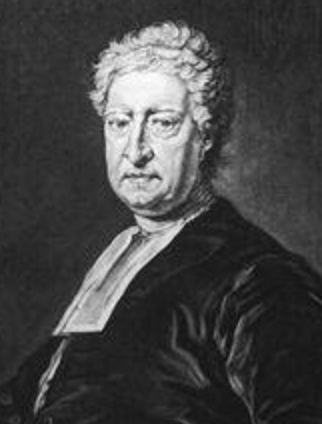On this date c. 1653-57, deist author Matthew Tindal was born in England. Educated in a country school and at Oxford to study law, Tindal was elected to a law fellowship at All Souls College in 1678. He converted to Catholicism briefly during the reign of James II but returned to the Church of England in 1687, persuaded of “the absurdities of popery.”
His 1706 book Rights of the Christian Church asserted “against Romish and all other Priests who Claim an Independent Power over It” and argued for the supremacy of the state over the church. It provoked loud clergy rebukes and attacks against his character. The House of Commons ordered the book burned by the hangman.
Not to be deterred, Tindal in 1730 anonymously published Christianity as Old as the Creation, using the pseudonym “a Christian Deist.” By publishing the book without his name, he avoided prosecution. In what came to be called “the deist’s bible,” Tindal insisted “That God requires nothing for his own sake. No, not the worship we are to render him, nor the faith we are to have in him.”
Tindal wrote of prayer: “There are few so gross to imagine, we can direct infinite wisdom in the dispensation of providence, or persuade him to alter those laws he contrived before the foundation of the world for putting things in a regular course.” The book was reprinted four times.
According to freethought historian Joseph McCabe, the book “was useful to later Deists, including Voltaire.” (A Biographical Dictionary of Modern Rationalists.) Tindal wrote a manuscript as a rejoinder to answer some 150 critics, which was ready for publication upon his death but was destroyed by order of Bishop Gibson of London. (D. 1733)


